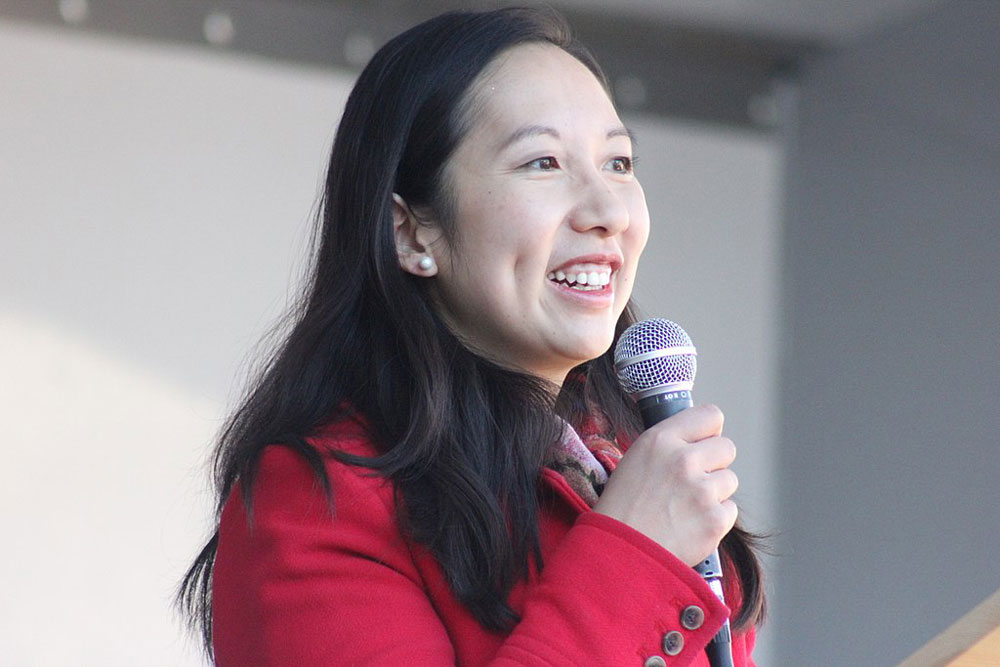
July 16, 2019; Boston Globe
Planned Parenthood President Dr. Leana Wen discovered yesterday that she was out of a job. Months of conflict between Wen and the board of directors over the Planned Parenthood’s direction led them to end her employment, citing “philosophical differences.” She had been in the job about ten months.
Dr. Wen was the first physician to lead Planned Parenthood for decades. She is also the successor to Cecile Richards, who held the leadership position for a dozen years and was perhaps the most famous person to lead the organization since its founder, Margaret Sanger. Richards led the organization through many strategic and hyper-political moments, finally stepping down in 2018 while vowing to continue the fight.
Wen’s short tenure may not be surprising in organizational terms; following a well-respected longtime leader into a leadership position carries some risk for the successor. But any sense of misalignment is bound to be felt more acutely in this time of heightened political tension.
After Richards’ departure, Dr. Wen, who was previously Baltimore’s health commissioner, was elected unanimously. Though only 35 years old, Dr. Wen had already organized initiatives to make healthcare more broadly accessible in Baltimore and pushed the city’s infant mortality rate to record lows.
The parting of ways seems to have been nearly inevitable. In November 2018, at the beginning of her tenure, Wen told Caitlin Roper at the New York Times, “The politicization of care deeply troubles me. That’s, unfortunately, the reality that we’re in.” She expressed frustration with the way public health is undervalued, with the reality that while “the work of public health works best when we are invisible,” invisible organizations don’t get funding or support.
As the leader of Planned Parenthood, Dr. Wen chose to focus on emphasizing the need for universal access to basic healthcare, which includes reproductive healthcare. In a statement yesterday, Wen wrote, “I believe that the best way to protect abortion care is to be clear that it is not a political issue but a healthcare one, and that we can expand support for reproductive rights by finding common ground with the large majority of Americans who understand reproductive health care as the fundamental health care that it is.”
Sign up for our free newsletters
Subscribe to NPQ's newsletters to have our top stories delivered directly to your inbox.
By signing up, you agree to our privacy policy and terms of use, and to receive messages from NPQ and our partners.
However, in a letter thanking her colleagues for their work, Dr. Wen wrote that the board wants to “double down on abortion rights advocacy.” She wrote that she “[understood] the shift in the Board’s prioritization,” due to the policy climate around women’s health rights.
That climate has been getting worse since Trump’s election, and it changed dramatically this week, just the day before Wen’s departure, when the domestic gag rule went into effect. The rule declares, “None of the funds appropriated under [Title X] funding shall be used in programs where abortion is a method of family planning.” Planned Parenthood has already declared its refusal to comply with the rule, because it means they can’t provide the full range of care to their patients. They thereby stand to lose about $60 million in federal funding.
Faced with this crisis, the board lost no time getting organized. They’ve appointed Alexis McGill Johnson, the executive director and co-founder of the Perception Institute, as interim leader in another unanimous vote. Johnson has a long history with Planned Parenthood, having chaired Planned Parenthood’s board from 2013–2015; like Richards, she brings political organizing skills and commitments to the job.
Dr. Wen has expressed gratitude to the physicians and other staff who worked with her during her tenure but seemed to feel the board had not handled the transition well. She tweeted on Tuesday, “I just learned that the @PPFA Board ended my employment at a secret meeting. We were engaged in good faith negotiations about my departure based on philosophical differences over the direction and future of Planned Parenthood.” An hour later, the @PPFA account released nearly simultaneous tweets announcing her departure and Johnson’s appointment. Wen’s letter to her colleagues recalled a number of advocacy efforts she had led, including declaring a state of emergency for women’s health, launching the “Bans Off My Body“ campaign, and releasing the Blueprint for Sexual and Reproductive Health, Rights, and Justice. The latter was announced Monday, the day before her departure.
It seems that, really, everybody is going to be fine moving forward. Dr. Joshua Sharfstein, the vice dean for public health practice and community engagement at the Johns Hopkins Bloomberg School of Public Health, said Wen “went in with a great reputation and will come out with a great reputation.”
Planned Parenthood, for its part, is a strong national organization with dozens of affiliates who have their own fierce leaders. Many of those affiliates also have their own support networks and millions of dollars in revenue. They will survive this transition, as they have others.
But after such a bold declaration of intent with regard to mission at this critical moment, Planned Parenthood will be an organization to watch.—Erin Rubin













